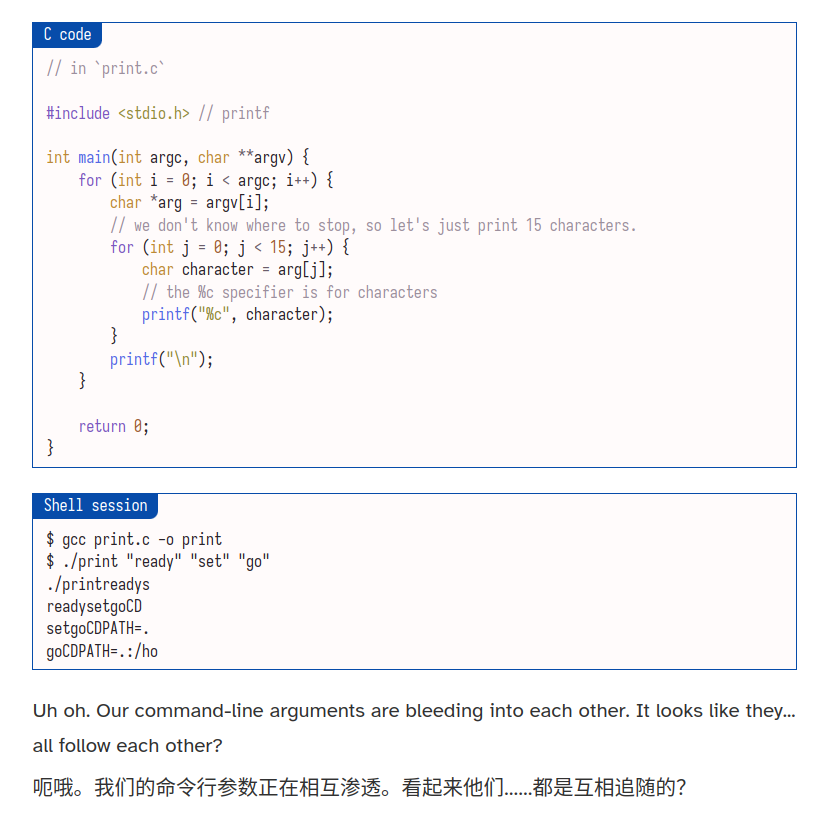机翻摘抄自 Working with strings in Rust
从C开始 当人们学习Rust 编程语言时,总会出现一个问题:为什么有两种字符串类型?为什么有String和&str ?
作者先从一个C语言程序入手:
1 2 3 4 5 6 7 8 9 10 11 12 _// in `print.c`_
看看结果,看起来不错!
1 2 3 4 5 6 $ gcc print.c -o print
现在看看我们到底在做什么
1 2 3 4 5 6 7 8 9 10 11 12 _// in `print.c`_
Now we’re using the %p format specifier, which prints.. pointers!%p格式说明符,它打印..指针!
1 2 3 4 5 6 7 8 9 10 11 $ gcc print.c -o print
于是我们知道,argv是一个地址数组%s如何知道自己何时停止打印?
让我们尝试将我们的程序通过管道传输到像xxd这样的十六进制转储器中,以准确查看发生了什么:
1 2 3 4 5 6 7 $ # note: "-g 1" means "show groups of one byte",
1 2 00000000: 2e 2f 70 72 69 6e 74 00 72 65 61 64 79 00 73 0a ./print.ready.s.
我们发现他用00分割了每个参数,事实上,C具有以null(0)结尾的字符串。%s等价于一个在0上break的%c打印程序。
==You may have noticed that when our print program went beyond the end of our arguments, it showed CDPATH=.:/ho too.Making our own executable packer series instead.CDPATH=.:/ho 。制作我们自己的可执行加壳器” 系列 ==
现在进行最后一个测试
1 2 3 $ gcc print.c -o print
好像出现了一点问题,实际我们想要的是“ÉLÉMENT”,好吧,让我们试试更简单的事情——打印每个字符%c并用空格隔开。
1 2 3 4 5 6 7 8 9 10 11 12 13 14 15 16 17 18 19 20 _// in `print.c`_
1 2 3 $ gcc print.c -o print
不太行……还是再看看xxd好吗?
gcc print.c -o print 1 2 3 $ ./print "élément" | xxd -g 1
问题就在于,É实际上是两个bytec3 a9,即使我们使用nodejs书写一样如此,为什么他的编码是c3 a9?是时候学习一下utf-8了。
快速UTF-8入门

